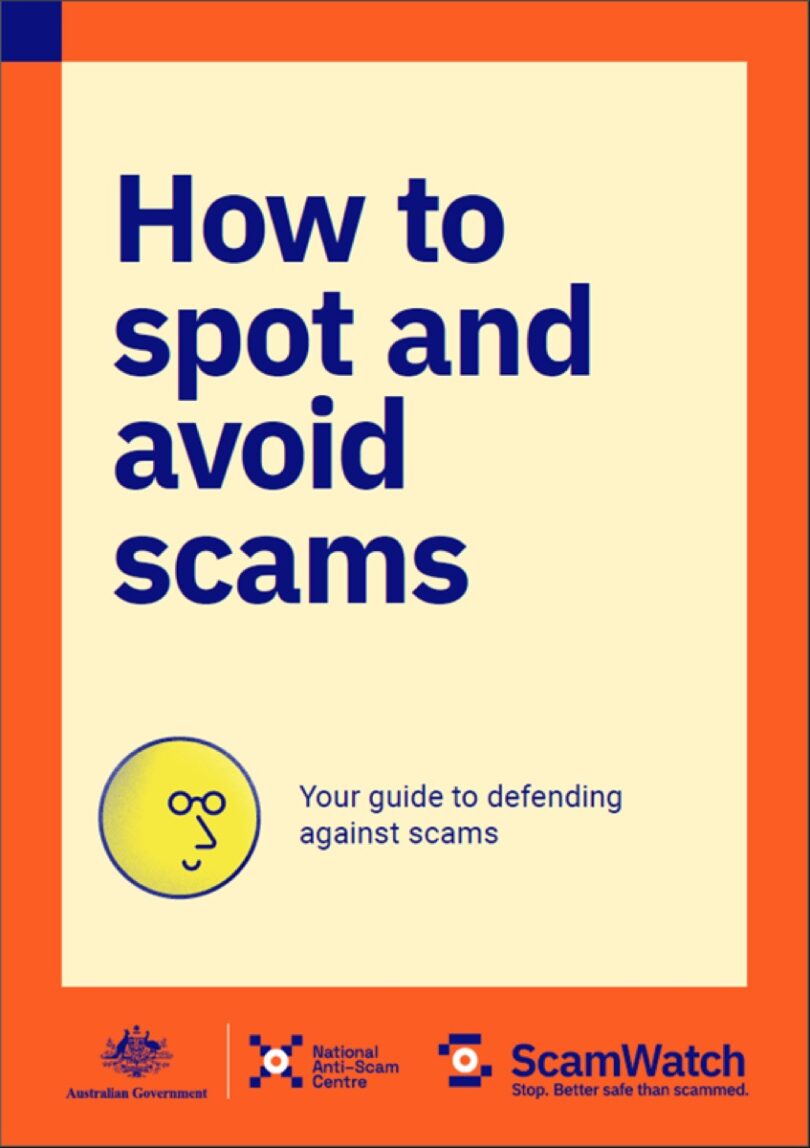The NSW Government initiative follows an almost 20 per cent increase in scams reported in 2023, with a total of 601,000 scams causing $2.7 billion in losses.
Young people between 18 and 24 are more likely than any other age group to become victims of fraud and scams, and the number of scams reported by people under 18 has nearly quadrupled since last year, according to the Australian Institute of Criminology.
A new online teacher’s toolkit designed by ID Support NSW provides students with the tools and guidance to spot scams and protect their personal information, with interactive activities, quizzes, videos and case studies designed to help students from years 9 to 12 develop skills to navigate the online world.
The resource includes tips such as treating a password like a toothbrush – change them often and never share them with anyone – as well as what should and shouldn’t be shared online. It also provides tips on how to identify a scam, including checking for unusual domain names, an unusual email format and a misleading hyperlink.
ID Support NSW has also developed a Data Breach Portal to help people who think they might be the victim of a data breach check whether an email they received from ID Support NSW is authentic.
It notified almost 200,000 people that their personal information had been compromised in a data breach last year and found that when customers receive a notification, the most common question they ask is whether the correspondence is legitimate.
Anyone concerned about the security of personal information they store can also use ID Support NSW’s new Personal Information Risk Assessment Tool (PIRAT) to understand the potential risks in holding customer data.
The tool can be used both proactively and in the wake of a data breach to assess risk from low to extreme based on the information’s usage and its appeal to cybercriminals.
Customers who want to access the Data Breach Portal can visit nsw.gov.au/id-support-nsw/get-support.
To undertake a risk assessment via the PIRAT, go to nsw.gov.au/id-support-nsw/be-prepared/pirat/pirat-assessment.
ID Support NSW also has several resources, tips, tools and webinars available to help people remain safe online at nsw.gov.au/id-support-nsw/be-prepared.
Minister for Customer Service and Digital Government Jihad Dib said it’s never too early to build awareness around scams and fraud, and the Teacher’s Toolkit is a resource teachers can use to help students understand risk online and measures they can take to protect their identity.
“Scam emails, text messages and phone calls are unfortunately something we all encounter, and ID Support NSW is there to help people navigate this new normal,” Mr Dib said.
Steps to take if you’ve been scammed:
If a scammer has stolen your money or personal details, contact your bank or card provider immediately to report the scam. Ask them to stop any transactions.
IDCARE is Australia and New Zealand’s national identity and cyber support service. They can help make a plan (for free) to limit the damage caused by identify theft. Call them on 1800 595 160 or visit idcare.org to find out more.
If a scam is causing problems with debt, talk to a financial counsellor. Moneysmart provides a list of free and confidential services to help you get your finances back on track.
If you need someone to talk to, reach out to family and friends or you can contact Lifeline (13 11 14) or Beyond Blue (1300 22 4636).
See The Little Books of Scams at scamwatch.gov.au/system/files/little-book-of-scams-2024-english.pdf
New tools helping you beat scammers
NEW tools to help residents combat data breaches, including a new resource to help students spot scams and protect their personal information and an online portal to check the legitimacy of a breach notification, were unveiled during Scams Awareness Week (August 26-30).


